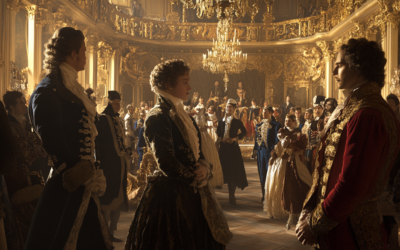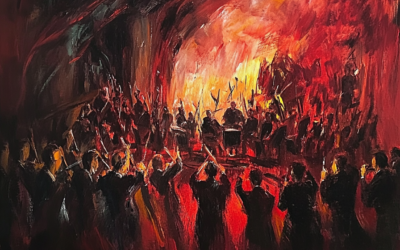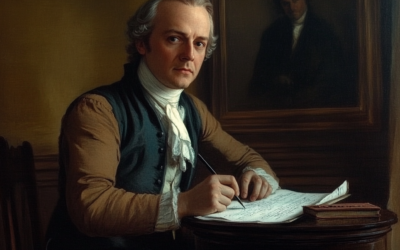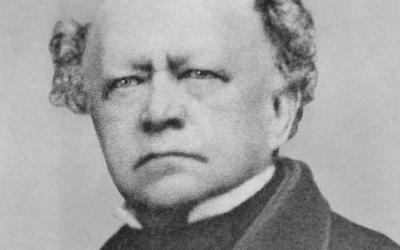Mozart’s Illusory Triumphs
A Tale of Embellishment and Courtly Absence
The story of the young Mozart’s so-called triumphs at the courts of Europe is a tale riddled with embellishments, half-truths, and fabrications—many courtesy of Leopold Mozart himself and those who later sought to mythologize his son. One such example is the visit to Munich on 12 January 1762.
Leopold and Anna Maria brought Wolfgang and his sister, Nannerl, to perform at the court of Prince-Elector Maximilian III. Yet, despite Leopold’s grand descriptions, not a single court document or reliable witness account has surfaced to confirm this celebrated performance.
The biographer Schlichtegroll claims, without evidence, that the Mozarts “performed before the Prince-Elector and received many compliments and praises.” But how much of this can we trust?
Upon their return to Salzburg, Leopold boasted that the children’s harpsichord playing had reached new heights, though no verifiable proof supports these claims either.
Mozart: The Fall of the Gods
This book offers a fresh and critical look at the life of Wolfgang Amadeus Mozart, challenging the myths that have surrounded him for centuries. We strip away the romanticised image of the “natural genius” and delve into the contradictions within Mozart’s extensive biographies. Backed by nearly 2,000 meticulously sourced citations, this work invites readers to explore a deeper, more complex understanding of Mozart. Perfect for those who wish to question the traditional narrative, this biography is a must-read for serious music lovers and historians.
"Documented reality doesn’t always match the fabulous stories passed down by Mozart’s biographers."
Mozart: The Fall of the Gods
The Glass Window Boast in Frankfurt
As the Mozarts embarked on their “grand tour,” Leopold couldn’t resist leaving a boastful mark. At their lodging in Frankfurt, he etched onto a windowpane: “Mozart, Maitre de la Musique de la Chapelle de Salzbourg avec Sa Famille le 12 Aout 1763.” The inscription—claiming a title he did not possess—translates to, “Mozart, Master of the Music Chapel of Salzburg with his family, 12 August 1763.” This self-promotion shows Leopold’s habitual need to exaggerate their importance, raising himself to the rank of Kapellmeister without ever holding that position officially. One might even say it was a compulsive need to dress up reality, ensuring history would remember him more grandly.
Vienna and the Imperial Court: Unimpressed or Ignored?
On 18 September 1762, the Mozart family reached Vienna, aiming to dazzle the imperial court. Schlichtegroll’s account again attempts to paint a picture of prestige. Yet, if we delve deeper, we find that neither Emperor Francis I nor his musicians paid much attention to the Mozart children. The imperial Master of the Chapel and the court musicians seem to have carried on quite unbothered by the young prodigies. Only Empress Maria Theresa, sharp-eyed and ever vigilant, reportedly referred to the Mozarts as “gueux”—that is, “beggars.”
A Fabricated Anecdote to Boost Mozart’s Fame
Desperate to validate this visit, Schlichtegroll concocted yet another fiction, this time at the expense of Georg Christoph Wagenseil, a respected court composer. According to the fanciful tale, Emperor Francis summoned Wagenseil to turn the pages for young Mozart, who had allegedly charmed the sovereign with his musical precocity. The story even features a precocious Wolfgang commanding: “Where is Mr. Wagenseil? He must come; he knows what he’s doing!” Wagenseil then obediently took his place, flipping pages for the child who supposedly performed one of the composer’s own concertos.
Implausibilities and Contradictions
Not only does Schlichtegroll’s account lack coherence, but it also stretches credibility. Are we to believe that Emperor Francis, preoccupied with the pressing concerns of war, granted an audience to a child performing feats such as playing the keyboard blindfolded or with a single finger? Moreover, this narrative conveniently undermines both Wagenseil and the emperor himself, portraying them as incompetent spectators to Mozart’s supposed genius. How convenient for Leopold’s legend.
As we peel back the layers of myth and examine the actual records—or lack thereof—the narrative that emerges is far less extraordinary than Leopold or his biographers would have us believe. In truth, the Mozarts’ encounters with European nobility were often less grand and far more fabricated than history remembers. “To believe the extraordinary,” it seems, “requires extraordinary evidence.” Alas, Leopold’s stories often fall woefully short.
You May Also Like
The London Pieces: Mozart or Make-Believe?
The London pieces, edited for modern tastes, lose their authenticity. Only the uncorrected originals show Mozart’s true early voice—naïve yet authentic.
The Myth of the “Viennese Classics”: Mozart’s True Heritage and the Empire’s Agenda
Mozart wasn’t the quintessential Viennese; rather, he was shaped by German heritage and an opportunistic empire that controlled music as fiercely as it did its people.
The Nationalistic Roots of the Philharmonic Legacy
Under Goebbels, the Berliner Philharmoniker became an instrument of Nazi propaganda, framing German composers as the supreme guardians of musical heritage.
Australian Scholars Confirm Our Findings on Mozart’s Forged Catalogue
Professor Martin Jarvis of Darwin University confirmed our long-held findings that Mozart’s personal catalogue is a forgery, during his recent lecture The Mozart Scam. Forensic analysis continues to unravel the myths surrounding Mozart’s legacy.
The Italian Journey
The Mozarts’ Italian journey of 1769 was not a leisurely Grand Tour but a strategic mission driven by ambition, navigating the treacherous roads of 18th-century Europe in pursuit of fame and fortune.
Mozart’s Music or Marketing Strategy?
Despite Köchel’s best intentions, his catalogue of Mozart’s works became a commercial tool, filled with questionable pieces added by publishers keen on profit rather than accuracy.







